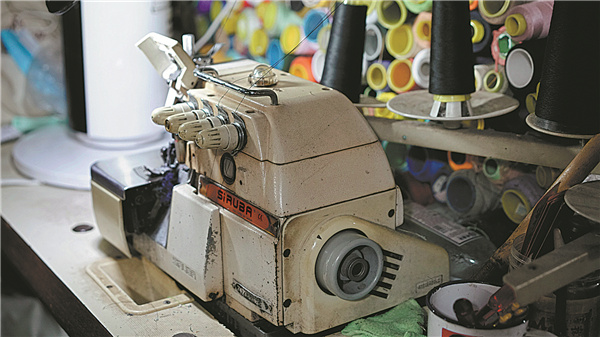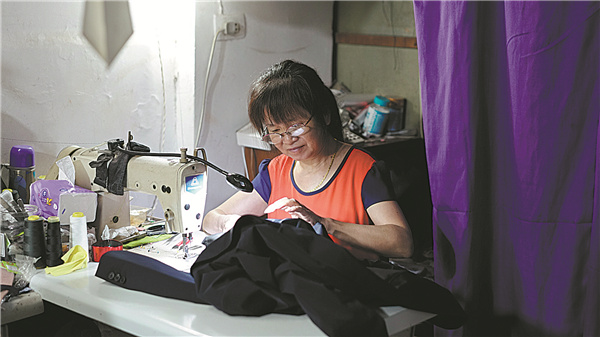

"It was hard for our domestic brands to compete with fast retailing brands such as Uniqlo and Zara, which offer more choice. So some traditional brands with good handicrafts gradually left the stage," he adds.
However, since the size and cuttings of foreign brands that are designed for foreigners do not fit most Chinese people due to their different body shape, the clothing layout needs to be adjusted.
"As Shanghai has always been a fashion capital, people are particular about clothes and pursue good brands that also fit well. So, altering clothes has become our new way out," he adds.
Tao's tailoring business was booming and more people joined.
Tao recalls that there were eight to 10 tailor shops in the villa, like Tao Ji, in 2010. And during the peak period, about 28 stores in the nearby shopping malls asked Tao to alter clothes.

Gradually, business improved so much that they all hired extra staff.
"Working overtime became normal for me to finish orders in time. I often stayed up until 3 am. Sometimes I fell asleep at the sewing machine," Tao says.
Other tailor outlets such as Mei Mei, Xiao Huang, and Xiao Hang were latecomers that launched their stores after 2000. They benefited from the agglomeration effect and received many orders from some fast-retailing brands and are still open along with Tao Ji and No 122.
Although the number of people joining the industry is increasing, altering clothes is never as easy as actually making them.